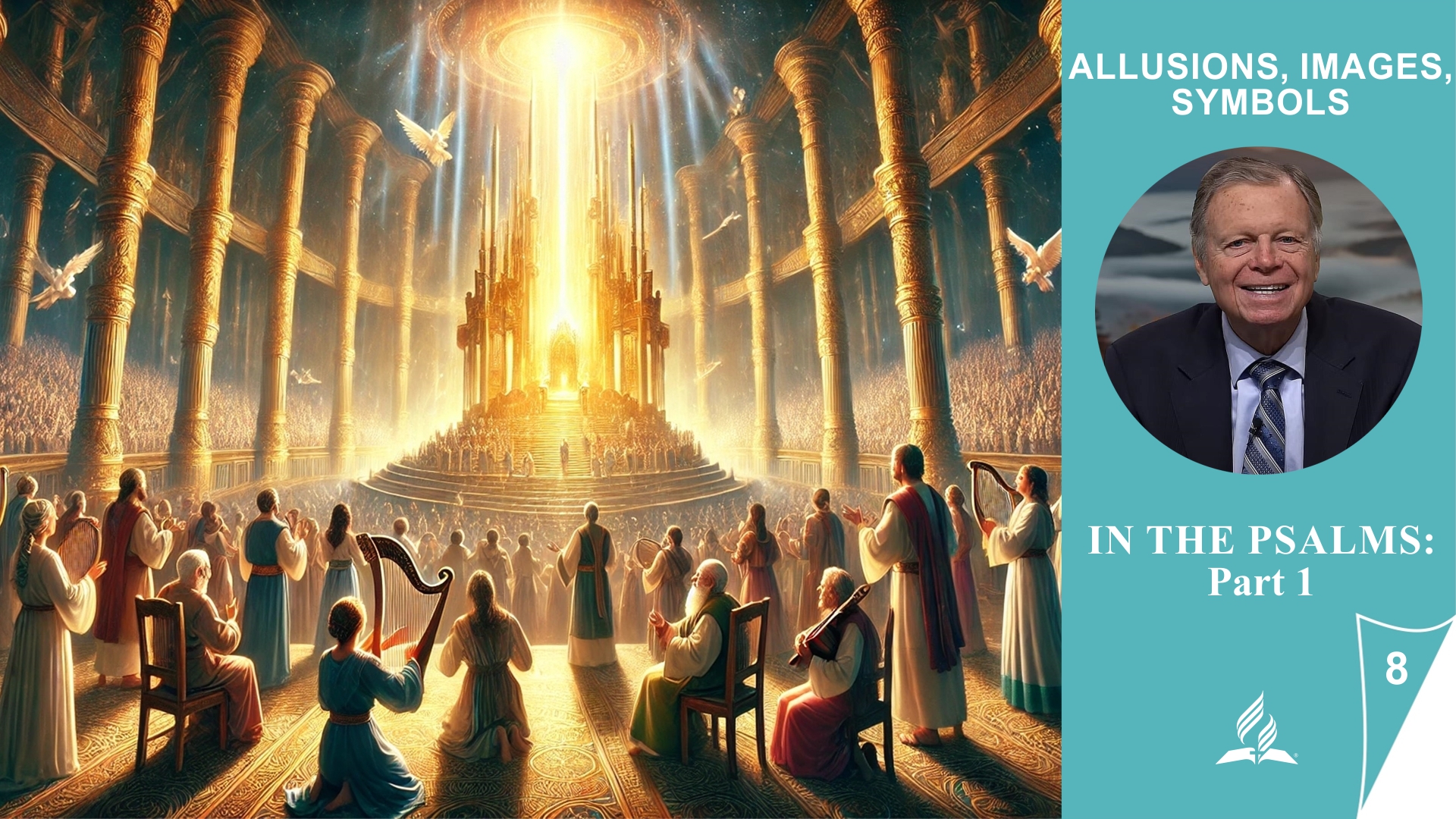 May 19, 2025
May 19, 2025
 DAILY BIBLE READING
DAILY BIBLE READING
 Genesis 33 – The Reconciliation of Jacob and Esau – When Brothers Forgive
Genesis 33 – The Reconciliation of Jacob and Esau – When Brothers Forgive
══════════════════════════════════════════════
 Bible Text – Genesis 33 (KJV)
Bible Text – Genesis 33 (KJV)
1 And Jacob lifted up his eyes, and looked, and, behold, Esau came, and with him four hundred men. And he divided the children unto Leah, and unto Rachel, and unto the two handmaids.
2 And he put the handmaids and their children foremost, and Leah and her children after, and Rachel and Joseph hindermost.
3 And he passed over before them, and bowed himself to the ground seven times, until he came near to his brother.
4 And Esau ran to meet him, and embraced him, and fell on his neck, and kissed him: and they wept.
5 And he lifted up his eyes, and saw the women and the children; and said, Who are those with thee? And he said, The children which God hath graciously given thy servant.
6 Then the handmaidens came near, they and their children, and they bowed themselves.
7 And Leah also with her children came near, and bowed themselves: and after came Joseph near and Rachel, and they bowed themselves.
8 And he said, What meanest thou by all this drove which I met? And he said, These are to find grace in the sight of my lord.
9 And Esau said, I have enough, my brother; keep that thou hast unto thyself.
10 And Jacob said, Nay, I pray thee, if now I have found grace in thy sight, then receive my present at my hand: for therefore I have seen thy face, as though I had seen the face of God, and thou wast pleased with me.
11 Take, I pray thee, my blessing that is brought to thee; because God hath dealt graciously with me, and because I have enough. And he urged him, and he took it.
12 And he said, Let us take our journey, and let us go, and I will go before thee.
13 And he said unto him, My lord knoweth that the children are tender, and the flocks and herds with young are with me: and if men should overdrive them one day, all the flock will die.
14 Let my lord, I pray thee, pass over before his servant: and I will lead on softly, according as the cattle that goeth before me and the children be able to endure, until I come unto my lord unto Seir.
15 And Esau said, Let me now leave with thee some of the folk that are with me. And he said, What needeth it? let me find grace in the sight of my lord.
16 So Esau returned that day on his way unto Seir.
17 And Jacob journeyed to Succoth, and built him an house, and made booths for his cattle: therefore the name of the place is called Succoth.
18 And Jacob came to Shalem, a city of Shechem, which is in the land of Canaan, when he came from Padanaram; and pitched his tent before the city.
19 And he bought a parcel of a field, where he had spread his tent, at the hand of the children of Hamor, Shechem’s father, for an hundred pieces of money.
20 And he erected there an altar, and called it EleloheIsrael.
══════════════════════════════════════════════
 Introduction
Introduction
After years of flight, fear, and separation, Jacob and Esau finally meet—two brothers whose relationship had been marred by deceit, anger, and mistrust. What might have become a dramatic confrontation ends instead in embrace and tears. This is one of the Bible’s most powerful stories of forgiveness, humility, and God’s work in human hearts.
══════════════════════════════════════════════
 Commentary
Commentary
-
Jacob’s Preparation (vv. 1–3)
Jacob knows he faces a sensitive encounter. Fearing Esau’s reaction, he strategically arranges his family and leads humbly. Bowing seven times signifies profound humility—and perhaps genuine repentance. Jacob no longer wants to fight but to make peace.
Spiritual insight: True reconciliation begins with a heart willing to humble itself. -
Esau’s Response (vv. 4–11)
Unexpectedly, Esau runs to his brother, embraces him, kisses him—both weep. Deep wounds can be healed when hearts soften. Seeing Esau’s forgiveness, Jacob exclaims, “I saw your face as though I’d seen God’s face.” He recognizes in that mercy a glimpse of God’s own nature.
Spiritual insight: When we forgive, we reflect God’s heart. -
Parting in Peace (vv. 12–16)
Though Esau invites Jacob to travel together, Jacob declines graciously. Reconciliation does not always mean restoring the old status quo, but it does permit a new beginning free of bitterness.
Spiritual insight: Reconciliation may lead to different paths, but it always creates peace. -
Settlement and Altar in Shechem (vv. 17–20)
Jacob builds a home and livestock pens at Succoth, then purchases land at Shechem and erects an altar to “El-Elohe-Israel.” He acknowledges that his peace and new start come from God alone.
Spiritual insight: Every fresh start deserves an altar—an expression of thanksgiving and worship.
══════════════════════════════════════════════
 Summary
Summary
Jacob and Esau’s story vividly demonstrates God’s power to heal even the deepest rifts. Jacob arrives in fear but finds favor; Esau comes with four hundred men yet brings an embrace instead of vengeance. Where human effort fails, the Spirit of God effects true heart transformation.
══════════════════════════════════════════════
 Today’s Message
Today’s Message
-
Genuine repentance paves the way for reconciliation.
Jacob’s humility was authentic—he had changed. When we seek forgiveness, it must spring from conviction, not mere obligation. -
Grace can flow in the most unexpected places.
Esau’s capacity to forgive was a miracle of grace. Perhaps there is someone in your life to whom you must extend—or from whom you should seek—forgiveness. -
Reconciliation sparks a new journey with God.
Jacob built an altar. After reconciliation, we too are invited to honor God—through prayer, service, and praise.
 “For if you forgive men their trespasses, your heavenly Father will also forgive you.” – Matthew 6:14
“For if you forgive men their trespasses, your heavenly Father will also forgive you.” – Matthew 6:14
~~~~~  ~~~~~
~~~~~

 May 11–17, 2025
May 11–17, 2025
 WEEKLY SPIRIT OF PROPHECY READING
WEEKLY SPIRIT OF PROPHECY READING
 Ellen G. White │ Patriarchs and Prophets – Chapter 4
Ellen G. White │ Patriarchs and Prophets – Chapter 4
 “The Plan of Redemption”
“The Plan of Redemption”
 Read online here
Read online here
══════════════════════════════════════════════
 Introduction
Introduction
Chapter 4 of Patriarchs and Prophets, titled “The Plan of Redemption,” offers a profound glimpse into the heart of the Christian gospel. It portrays the cosmic significance of the Fall and God’s response through the redemptive work of Jesus Christ. From heaven’s anguish over humanity’s sin to the unfolding of the rescue plan in Christ’s sacrifice, the text reveals the unfathomable depth of God’s love.
══════════════════════════════════════════════
 Commentary
Commentary
- Heavenly Sorrow and Christ’s Compassion
After the Fall, all heaven mourns. The Son of God is moved with pity. Though the Creator could have left humanity to death, His love seeks a way of salvation. - The “Counsel of Peace” and Christ’s Self-Sacrifice
Redemption is decreed in an eternal, loving agreement between the Father and the Son. Christ volunteers Himself as the ransom—an act that fills the angels with both awe and sorrow. - The Role of the Angels in the Plan of Redemption
The angels cannot bear the burden of atonement, but they are commissioned to minister to humanity, to accompany Christ in His humiliation, and to support the unfolding of the redemption plan. - The Universal Significance of Christ’s Sacrifice
Christ’s offering matters not only for mankind but for the entire universe. It answers questions about God’s justice, the unchangeable nature of His law, and the character of Satan. - The First Promise in the Garden of Eden
Genesis 3:15 is presented as the “gospel in seed form.” It promises victory over Satan through the “seed of the woman,” ultimately fulfilled in Jesus Christ. - Hope Despite Judgment
Although humanity has fallen, hope remains. Through repentance and faith, people can be restored as children of God. - The Sacrificial Service as Symbol
The offerings continually reminded Adam of human sinfulness and the need for an atoning sacrifice. His first sacrifice was both painful and instructive. - The Cosmic Dimension of Redemption
The plan of salvation demonstrates God’s justice and mercy to all creation. It upholds God as righteous while exposing Satan as accuser and deceiver. - The Significance of the Immutable Law
If God’s law were changeable, Christ’s death would have been unnecessary. Instead, His sacrifice confirms the eternal and just character of the law.
══════════════════════════════════════════════
 Summary
Summary
The plan of redemption reveals God’s character—infinitely loving and perfectly just. Despite the depth of humanity’s fall, God offers restoration through Jesus Christ. Heaven, the universe, and humankind alike bear witness to the greatness of this plan, which was ordained before the foundation of the world.
══════════════════════════════════════════════
 Application for Today
Application for Today
- God sees our condition but does not abandon us.
- His love goes so far that He Himself bears the punishment we deserve.
- Christ is our substitute, our mediator, and our Savior.
- Faith in Him opens the way to forgiveness, life, and a future with God.
- Every person today has the opportunity to become part of this redemption.
“For God so loved the world, that he gave his only begotten Son, that whosoever believes in him should not perish but have everlasting life.”
— John 3:16
Source: https://fulfilleddesire.net/19-05-2025-genesis-chapter-33-believe-his-prophets/


 Lesson 8.In the Psalms: Part 1
Lesson 8.In the Psalms: Part 1 Introduction
Introduction





 Illustration – “The Locked Room”
Illustration – “The Locked Room” May 18, 2025
May 18, 2025 DAILY BIBLE READING
DAILY BIBLE READING Genesis 32 – From Fear to Encounter: Jacob’s Wrestle with God and His Renaming as Israel
Genesis 32 – From Fear to Encounter: Jacob’s Wrestle with God and His Renaming as Israel Bible Text – Genesis 32 (KJV)
Bible Text – Genesis 32 (KJV) Introduction
Introduction Commentary
Commentary Summary
Summary Message for Today
Message for Today ~~~~~
~~~~~
 May 11–17, 2025
May 11–17, 2025


 Lesson 7:
Lesson 7:  Introduction
Introduction





